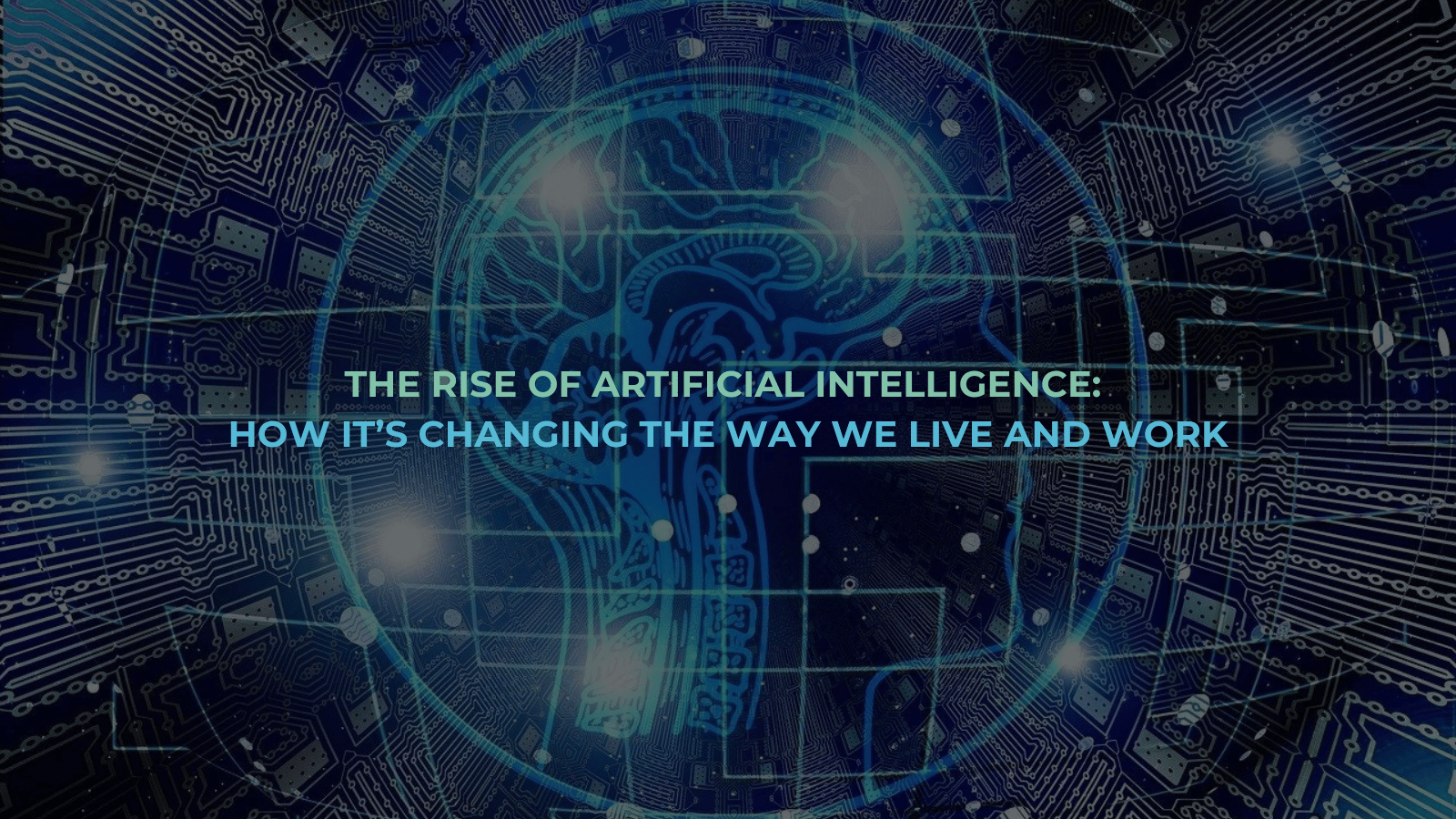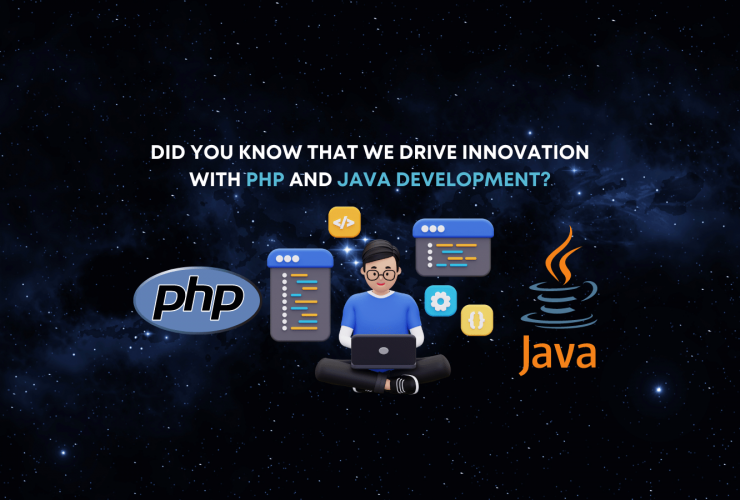The Rise of Artificial Intelligence: How It’s Changing the Way We Live and Work
By Roscoe Kerby, 12 April 2023
Computer Scientist working as a Software Engineer. [BSc Computer Science Honours, BSc Mathematical Science (Computer Science)] [runtime.withroscoe.com]
It’s powerful stuff — we should treat it as such.
Artificial Intelligence (AI) is no longer a futuristic concept that only exists in science fiction movies.
In recent years, AI has become a significant part of our daily lives, revolutionising the way we work, communicate, and even think. From voice assistants like Siri and Alexa to self-driving cars and personalised advertisements, AI has made tasks more efficient and convenient than ever before. With advancements in machine learning, natural language processing, and robotics, the potential for AI to transform various industries, including healthcare, finance, and education, is limitless. However, with this rapid change comes the need for ethical considerations and regulations to ensure that AI is used for the betterment of society.
In this article, we will explore the rise of AI, how it’s changing the way we live and work, and what the future holds for this rapidly evolving technology.
What is Artificial Intelligence?
Artificial Intelligence (AI) refers to the creation of intelligent machines that can perform tasks that typically require human intelligence, such as problem-solving, decision-making, language understanding, and visual perception. AI is often categorised into two types: narrow or weak AI and general or strong AI.
Narrow AI refers to systems that are designed to perform specific tasks, such as image recognition, speech recognition, or playing chess. These systems are programmed to carry out a single task or a set of tasks with a high degree of accuracy and speed. Examples of narrow AI include Siri, Alexa, and Google Assistant.
General AI, on the other hand, refers to systems that can perform any intellectual task that a human can do. These systems can reason, understand natural language, and learn from experience. General AI is still in the research phase and has not yet been achieved.
Brief History and Evolution of AI
The concept of AI dates back to the ancient Greeks who had myths about robots and artificial beings. However, the modern era of AI began in the 1950s when computer scientists started developing algorithms that could simulate human thought processes. The term “artificial intelligence” was coined in 1956 at the Dartmouth Conference, where a group of scientists gathered to discuss the possibilities of creating intelligent machines.
In the early years, AI research focused on rule-based systems that relied on a set of if-then statements to make decisions. These systems were limited in their capabilities and were unable to handle ambiguity or uncertainty. In the 1980s, AI research shifted towards machine learning, a technology that enables systems to learn from data and improve their performance over time.
The 21st century has seen a surge in AI research, thanks to advancements in computing power, big data, and cloud computing. Today, AI is used in a wide range of applications, from self-driving cars to virtual assistants and chatbots.
How AI is Changing the Way We Live
AI has had a significant impact on the way we live our lives. It has made tasks more efficient and convenient, freeing up time for more important things.
Here are some of the ways AI is changing the way we live:
Personalised Experiences
AI is used to provide personalised experiences to users, whether it’s in the form of targeted advertisements or recommendations on streaming platforms. By analysing user data, AI algorithms can determine what products or services a user is likely to be interested in, increasing the chances of a sale.
AI Applications in Various Industries
AI has the potential to transform various industries, including healthcare, finance, and education. Here are some of the ways AI is being used in different industries:
Healthcare
AI is being used in healthcare to improve patient outcomes and reduce costs. Machine learning algorithms can analyze patient data to identify patterns and predict diseases before they occur. AI-powered medical devices can also help doctors and nurses make more accurate diagnoses and provide personalised treatment plans.
Education
AI is also being used in education to personalise learning experiences for students. Adaptive learning platforms use AI algorithms to analyse student data and provide personalised recommendations for study materials and activities. This approach can help students learn at their own pace and in a way that suits their individual needs.
Finance
AI is used in finance to detect fraud, make investment decisions, and provide personalised financial advice. By analysing large amounts of data, AI algorithms can identify patterns and trends that humans may not be able to detect.
Manufacturing
AI is being used in manufacturing to improve efficiency and productivity. Robots with AI capabilities can perform tasks that are repetitive and dangerous for humans, such as assembling components in a car factory. AI algorithms can also analyse production data to identify areas for improvement and optimise processes.
Retail
AI is being used in retail to provide personalised shopping experiences and improve customer service. By analysing customer data, retailers can provide targeted recommendations and promotions to increase sales. AI-powered chatbots can also provide customer support 24/7, reducing the need for human customer service representatives.
Advantages and Disadvantages of AI
AI has many advantages, including increased efficiency, improved accuracy, and better decision-making capabilities. However, it also has some disadvantages that need to be considered.
Advantages
Increased Efficiency
AI can perform tasks faster and with greater accuracy than humans. This can lead to increased productivity and efficiency in various industries.
Improved Accuracy
AI algorithms are less prone to errors than humans, especially in tasks that involve repetitive work or require a high degree of precision.
Better Decision-Making
AI algorithms can analyse large amounts of data and identify patterns and trends that humans may not be able to detect. This can lead to better decision-making in various industries, from finance to healthcare.
Disadvantages
Job Displacement
One of the major concerns about AI is that it could lead to job displacement. As AI systems become more advanced, they may be able to perform tasks that previously required human labour, leading to unemployment in some industries.
Lack of Creativity
AI algorithms are limited by the data they are trained on and may not be able to come up with creative solutions or ideas.
Ethical Concerns
There are ethical concerns surrounding the use of AI, particularly in areas such as privacy, bias, and transparency. AI systems can be biased if they are trained on data that is not representative of the population or if the algorithms are not transparent.
AI and Job Displacement
One of the most significant concerns about AI is that it could lead to job displacement. As AI systems become more advanced, they may be able to perform tasks that previously required human labour, leading to unemployment in some industries.
However, some experts argue that AI will create new jobs and opportunities in other industries. For example, AI could lead to the creation of new jobs in fields such as data science, machine learning, and robotics.
It’s also important to note that AI is not a replacement for human intelligence. While AI can perform certain tasks faster and with greater accuracy than humans, it lacks the creativity and critical thinking skills that humans possess.
Ethical Considerations and Regulations Surrounding AI
As AI becomes more prevalent in society, there is a need for ethical considerations and regulations to ensure that it is used for the betterment of society.
Here are some of the ethical considerations and regulations surrounding AI:
Privacy
AI systems can collect large amounts of data about individuals, raising concerns about privacy. Regulations such as the General Data Protection Regulation (GDPR) in the European Union and the Protection of Personal Information Act (POPIA) in South Africa aim to protect individuals’ privacy rights.
Bias
AI systems can be biased if they are trained on data that is not representative of the population or if the algorithms are not transparent. Regulations such as the Algorithmic Accountability Act in the United States aim to ensure that AI systems are fair and transparent.
Transparency
AI systems can be difficult to understand and interpret, leading to concerns about accountability and transparency. Regulations such as the European Union’s General Data Protection Regulation (GDPR) require companies to provide users with clear and concise information about how their data is being used.
Future of AI and its Potential Impact on Society
The future of AI is exciting and full of possibilities. As AI systems become more advanced, they will be able to perform tasks that were previously impossible or too difficult for humans. AI has the potential to transform various industries, from healthcare to finance and education.
However, there are also concerns about the potential impact of AI on society. Job displacement, privacy concerns, and bias are just a few of the issues that need to be addressed as AI becomes more prevalent.
It’s important for policymakers, businesses, and individuals to consider the ethical implications of AI and work towards creating a future where AI is used for the betterment of society.
AI and the Environment
AI also has the potential to help address environmental issues such as climate change. AI algorithms can analyse data from sensors and satellites to provide insights into climate patterns and trends. AI-powered systems can also optimise energy use in buildings and reduce waste in manufacturing processes.
However, it’s important to note that AI is not a solution to environmental problems on its own. It should be used in conjunction with other approaches, such as policy changes and renewable energy sources.
Conclusion
AI has the potential to transform our lives in ways we never thought possible. From personalised experiences to improved healthcare and education, the possibilities are endless. However, with this rapid change comes the need for ethical considerations and regulations to ensure that AI is used for the betterment of society.
As we move towards a future where AI is more prevalent, it’s important to consider the potential impact on society and work towards creating a future where AI is used responsibly and for the benefit of all.
#thedatacompany #artificialintelligence #machinelearning

Roscoe Kerby, BSc Computer Science Honours, BSc Mathematical Science (Computer Science)





